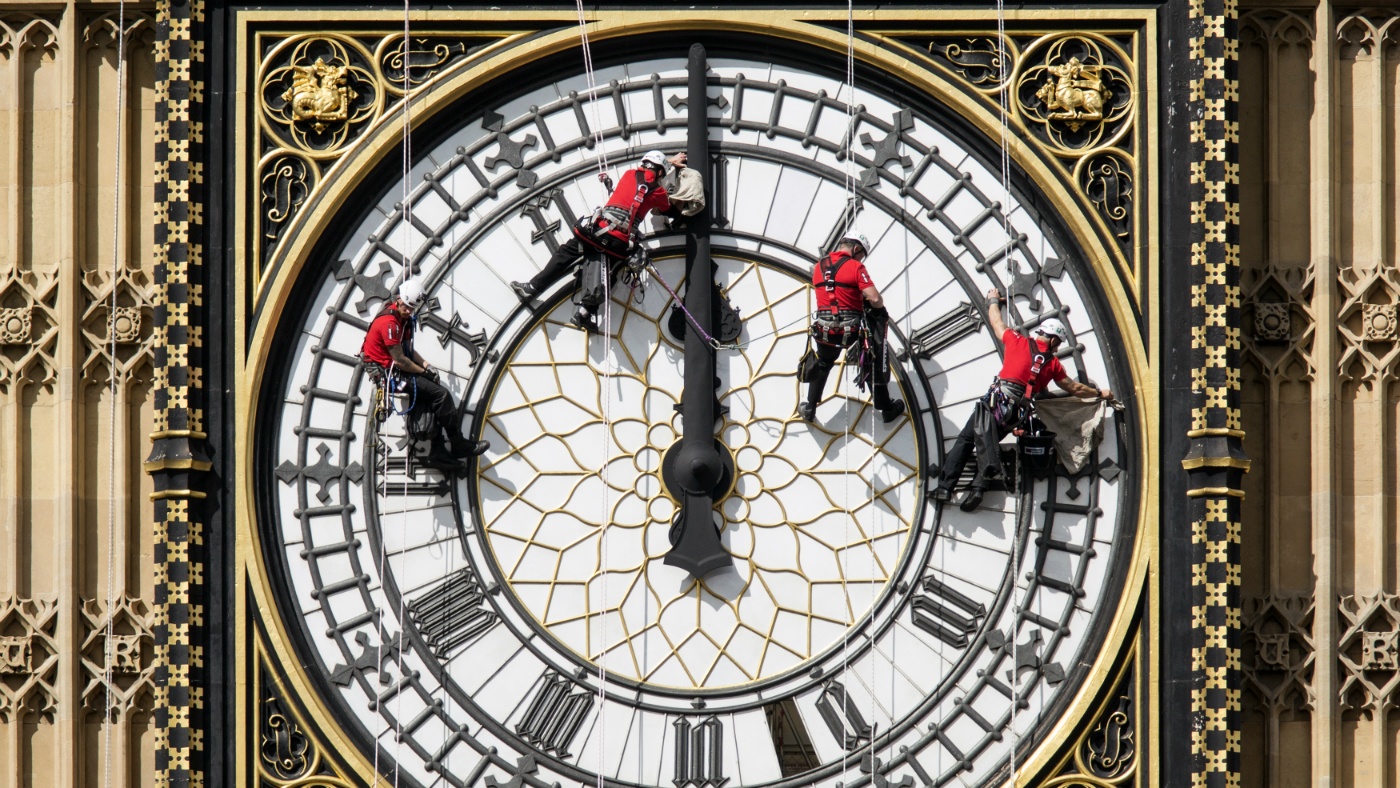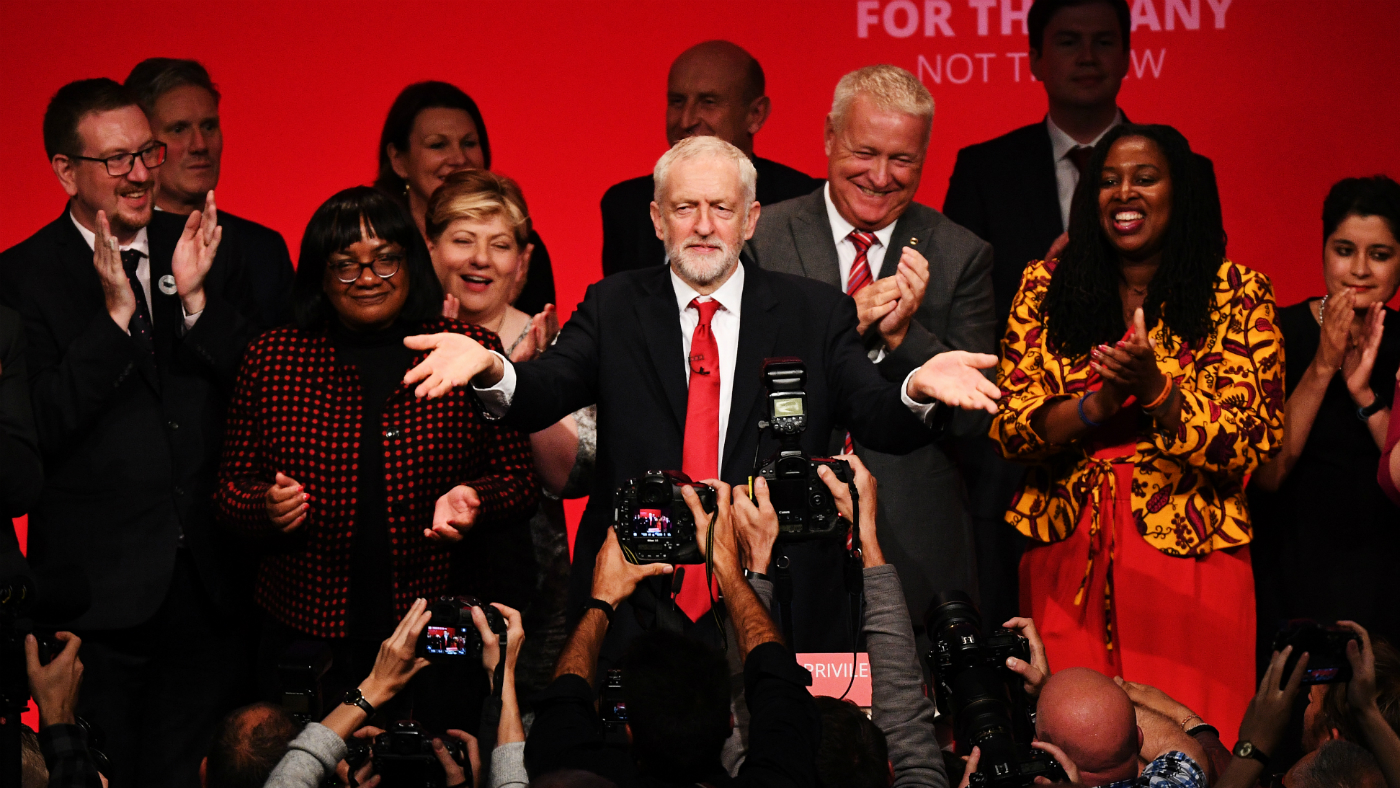Big Ben bell not actually called Big Ben - and four more fascinating facts
The tower in Parliament Square - and the bell within - are the subject of numerous misconceptions

A free daily email with the biggest news stories of the day – and the best features from TheWeek.com
You are now subscribed
Your newsletter sign-up was successful
One of the UK’s most famous attractions, Big Ben, is celebrating 159 years since it went into operation on 31 May 1859.
Despite being one of the most commonly photographed tourist hotspots on the planet, the tower in Parliament Square - and the bell within - are the subject of numerous misconceptions.
Here are some interesting facts you may not know about Big Ben:
The Week
Escape your echo chamber. Get the facts behind the news, plus analysis from multiple perspectives.

Sign up for The Week's Free Newsletters
From our morning news briefing to a weekly Good News Newsletter, get the best of The Week delivered directly to your inbox.
From our morning news briefing to a weekly Good News Newsletter, get the best of The Week delivered directly to your inbox.
No part of it is called Big Ben
Although tourists and locals often say “Big Ben” when referring to the tower at the Houses of Parliament, that isn’t its actual name.
The tower was originally known simply as the Clock Tower and was renamed the Elizabeth Tower in 2012 in honour of the Queen’s Diamond Jubilee.
However, for those about to point out that Big Ben is actually the name of the bell inside the tower, this isn’t strictly accurate either.
A free daily email with the biggest news stories of the day – and the best features from TheWeek.com
Its official name is the Great Bell. There are two theories regarding its adoption of the nickname Big Ben. These are that the Great Bell was named after Sir Benjamin Hall, First Commissioner for Works 1855-1858, or that it was named after Ben Caunt, a champion heavyweight boxer of the 1850s, according to the Parliament website.
It took 25 years to complete
Construction of the tower required 850 cubic metres of stone and 2,600 cubic metres of bricks, with building materials coming from Anston in Yorkshire; Caen in France; and Clipsham in Rutland, the Telegraph adds.
After a fire destroyed most of the old Palace of Westminster in 1834, the new parliament building was re-imagined in neo-gothic style by Charles Barry, the architect of the clock tower was Augustus Pugin, who had designed earlier clocks at places such as Scarisbrick Hall in Lancashire, Metro writes.
However, from these planning stages it would take 25 years until the bell rang for the first time, due to numerous construction and timing issues.
It is leaning
The top of the clock tower is leaning one-and-a-half feet off a level position, according to surveyors, and getting worse each year.
The Daily Mail says the tower is “sinking into the banks of the Thames, partly as a result of decades of underground excavation”, which, if it goes uncorrected, could “cause the tower to crash”.
Its current lean is said to be visible to the naked eye, but at current rates, it would take 4,000 years before the tower is as slanted as the Leaning Tower of Pisa, the newspaper adds.
Construction was surprisingly cheap
The total cost of making the clock and bells and installing them in the Elizabeth Tower reached £22,000 in 1859, according to the UK Parliament.
If adjusted for inflation, that equates to around £259,600 - a relatively small amount of money for such a large construction.
For reference, a report by HomeAdvisor found that the Eiffel Tower would have cost around £32m to construct today, while the Pyramids in Egypt would cost a remarkable £500m.
Renovation will be completed in 2020
The tower is currently undergoing renovation, and after four years of works the dials, hands and lights will be removed for restoration, Metro writes.
“At least one dial will be left intact and functioning through an electric motor, will always be visible. The aim of the renovation is to repair and conserve the tower to ensure that we have the iconic landmark for future generations and the addition of the lifts,” the newspaper adds.
The bell will not ring during this time - the first occasion since 1916, when it was silenced so as to avert zeppelin attacks during the First World War.
The renovation has not gone without criticism, with news of its silence described by Conservative MP James Gray as “entirely bonkers and ridiculous”.
-
 Political cartoons for February 15
Political cartoons for February 15Cartoons Sunday's political cartoons include political ventriloquism, Europe in the middle, and more
-
 The broken water companies failing England and Wales
The broken water companies failing England and WalesExplainer With rising bills, deteriorating river health and a lack of investment, regulators face an uphill battle to stabilise the industry
-
 A thrilling foodie city in northern Japan
A thrilling foodie city in northern JapanThe Week Recommends The food scene here is ‘unspoilt’ and ‘fun’
